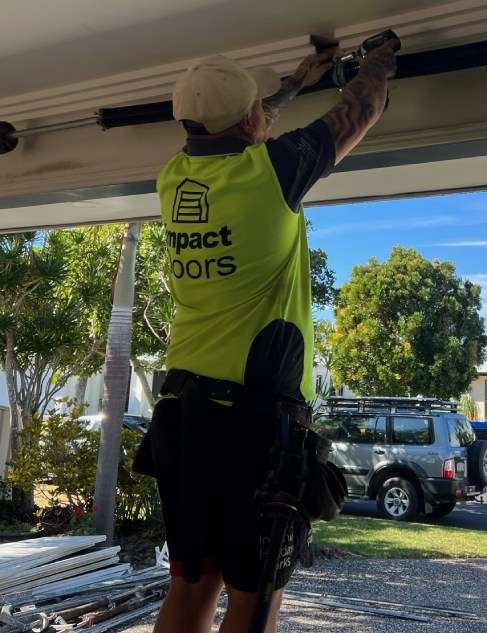Introduction
When it comes to our homes, safety and convenience are paramount. One of the most essential yet often overlooked components of home security is the garage door opener. A reliable garage door opener not only secures your vehicle but also enhances the overall functionality of your garage space. In this comprehensive guide, titled Garage Door Openers 101: Types and Features You Should Know, we will delve into various types of garage door openers, their features, troubleshooting tips, and maintenance practices. By the end, you'll be equipped with all the knowledge you need to make informed decisions about your garage door service.
What is a Garage Door Opener?
A garage door opener is a motorized device that opens and closes a garage door using a remote control or wall switch. It is garage door repair integral for modern garages, providing ease of access while enhancing security.
Types of Garage Door Openers
Understanding the different types of garage door openers can help you choose the best option for your home.
Chain Drive Openers- Pros: Durable and cost-effective. Cons: Noisy operation.
- Pros: Quiet operation; minimal maintenance. Cons: More expensive than chain drives.
- Pros: Requires less frequent maintenance; fewer moving parts. Cons: Slower operation compared to chain and belt drives.
- Pros: Extremely quiet; long-lasting. Cons: Higher initial cost.
- Pros: Compatible with smartphones; remote access. Cons: Dependent on Wi-Fi connection.
Choosing the Right Type of Garage Door Opener
When selecting a garage door opener, consider factors such as noise level, budget, and additional features like smart technology.
Noise Levels in Garage Door Openers
If you're living in close proximity to neighbors or if your garage is attached to your house, noise may emergency garage door repair be an important factor. For example:

- Chain drive openers are typically louder due to their metal-on-metal movement. Belt drive openers operate much more quietly because they utilize rubber belts.
Budget Considerations for Garage Door Openers
Budget plays a critical role in decision-making. Here’s a rough breakdown:
| Type | Average Cost Range | |-------------------|--------------------| | Chain Drive | $150 - $300 | | Belt Drive | $200 - $500 | | Screw Drive | $180 - $400 | | Direct Drive | $300 - $600 | | Smart Opener | $250 - $600 |
Features to Look for in a Garage Door Opener
Safety Features
One of the most crucial aspects of any garage door opener is its safety features:
- Auto-Reverse Mechanism: Prevents injury by automatically reversing when an object is detected. Rolling Code Technology: Changes access codes with each use to prevent unauthorized entry.
Convenience Features
Consider features that enhance usability:
- Remote Control: Most openers come with at least one remote control. Keypad Entry: Provides quick entry without needing a key or remote.
Smart Technology Integration
In today’s tech-savvy world, smart technology has become increasingly popular:
- Wi-Fi Compatibility: Allows users to open and close doors from anywhere via smartphone apps. Voice Activation: Works with devices like Amazon Alexa or Google Assistant for hands-free operation.
Common Issues with Garage Door Openers
Even the best garage door openers can run into problems from time to time. Knowing how to troubleshoot these issues can save you time and money on repairs.
Garage Door Won't Close? Understanding Why
If your garage door won't close properly, it could be due to several reasons:
Blocked Sensors Misaligned Tracks Damaged SpringsMake sure to inspect these components before calling for professional help through services like garage door service Moreton Bay.
Garage Door Troubleshooting Tips
Here are some troubleshooting steps you can take:
Check if there’s power supply going to the opener. Inspect remote batteries—replace if necessary. Look for obstructions along the tracks or sensors.Importance of Regular Garage Door Maintenance
Just like any other part of your home, regular maintenance can extend the life of your garage door opener significantly.
1. Lubrication
Applying lubricant on moving parts helps reduce friction and noise levels in chain drive systems specifically.
2. Checking Alignment
Misalignment can lead to operational inefficiencies—make sure tracks are straight and properly aligned.
3. Spring Inspection
The garage door spring plays a vital role in lifting the heavy weight of the door; check for wear and tear regularly!
FAQ Section
What should I do if my garage door won't open?
Begin by checking if power is reaching the unit or inspecting remotes for battery issues.
How often should I maintain my garage door?
It's advisable to conduct maintenance checks at least twice yearly—spring and fall are ideal times!
Can I install a new garage door opener myself?
Yes! Many homeowners opt for DIY installation by following manufacturer guidelines, though professional installation offers peace of mind.
Are smart garage doors safe?
Smart systems employ encryption techniques that enhance security measures significantly compared to traditional systems.
How do I know when my springs need replacement?
Signs include uneven closing/opening behavior or visible wear on older springs—consult professionals before attempting DIY replacements!
What kind of warranty do garage doors usually carry?
Most manufacturers offer warranties ranging from one year up to lifetime coverage depending on components used—always check specifics before purchasing!
Conclusion
In conclusion, understanding your options when it comes to choosing a garage door opener ensures that you secure not just your vehicle but also augment convenience at home! With advancements in technology making them smarter than ever before—and improved safety measures ensuring peace-of-mind—you'll find that investing in quality equipment pays off down the line!
By adhering closely to regular maintenance schedules complemented by timely troubleshooting guidelines outlined here within this guide titled Garage Door Openers 101: Types and Features You Should Know, homeowners can effectively mitigate risks associated with malfunctioning mechanisms while enjoying seamless operations every day! So take action today—secure yourself against future headaches by making informed choices regarding what type suits both needs AND budget perfectly!